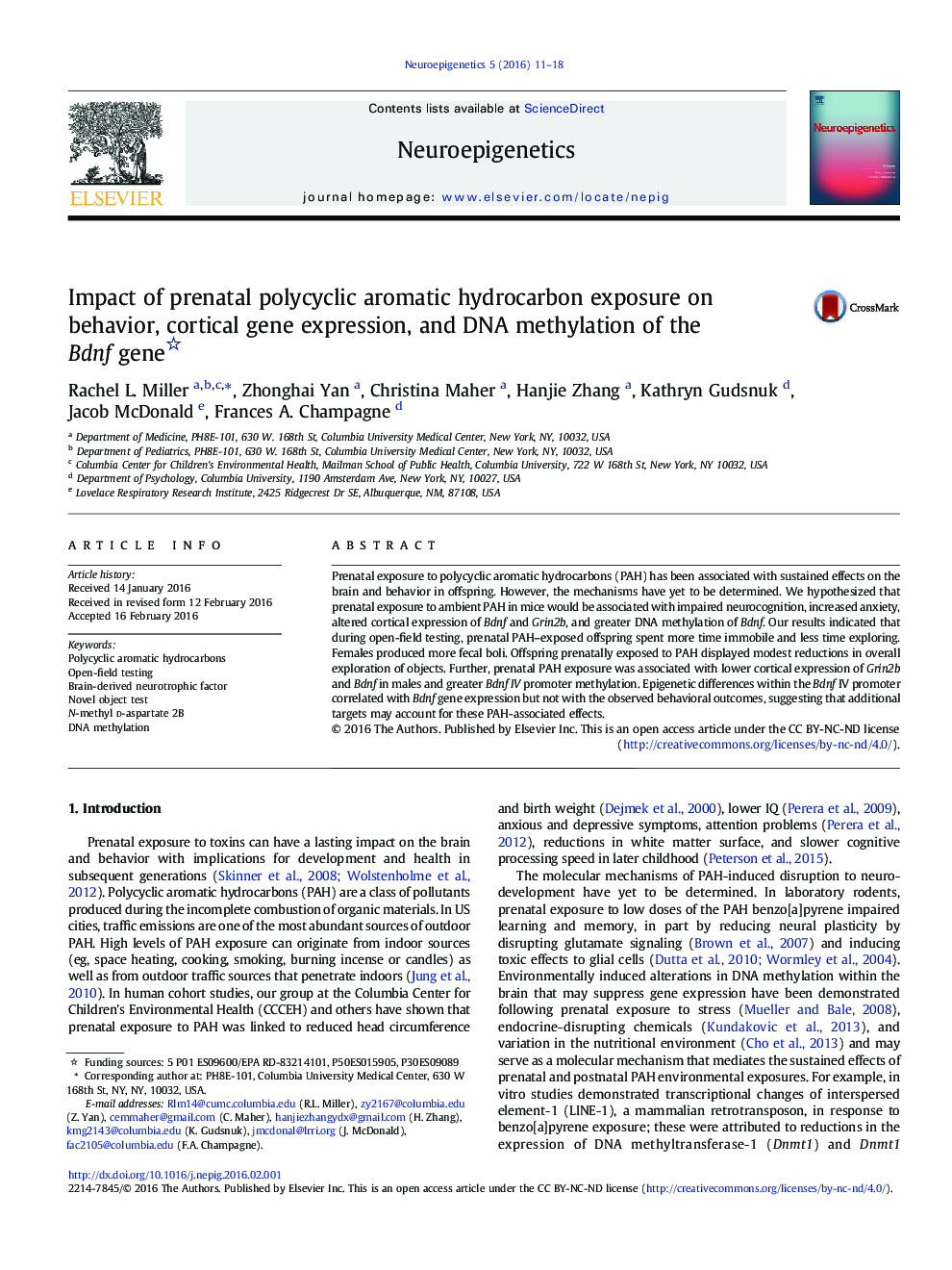| Article ID | Journal | Published Year | Pages | File Type |
|---|---|---|---|---|
| 2823957 | Neuroepigenetics | 2016 | 8 Pages |
•Prenatal PAH–exposed offspring spent more time immobile and less time exploring an open field.•Prenatal PAH–exposed females produced more fecal boli during open-field testing.•Prenatal PAH–exposed males failed to exhibit a preference for a novel object.•Prenatal PAH–exposed males exhibited reduced cortical expression of Grin2b and Bdnf.•Prenatal PAH–exposed offspring exhibited elevated DNA methylation in Bdnf IV.
Prenatal exposure to polycyclic aromatic hydrocarbons (PAH) has been associated with sustained effects on the brain and behavior in offspring. However, the mechanisms have yet to be determined. We hypothesized that prenatal exposure to ambient PAH in mice would be associated with impaired neurocognition, increased anxiety, altered cortical expression of Bdnf and Grin2b, and greater DNA methylation of Bdnf. Our results indicated that during open-field testing, prenatal PAH–exposed offspring spent more time immobile and less time exploring. Females produced more fecal boli. Offspring prenatally exposed to PAH displayed modest reductions in overall exploration of objects. Further, prenatal PAH exposure was associated with lower cortical expression of Grin2b and Bdnf in males and greater Bdnf IV promoter methylation. Epigenetic differences within the Bdnf IV promoter correlated with Bdnf gene expression but not with the observed behavioral outcomes, suggesting that additional targets may account for these PAH-associated effects.
